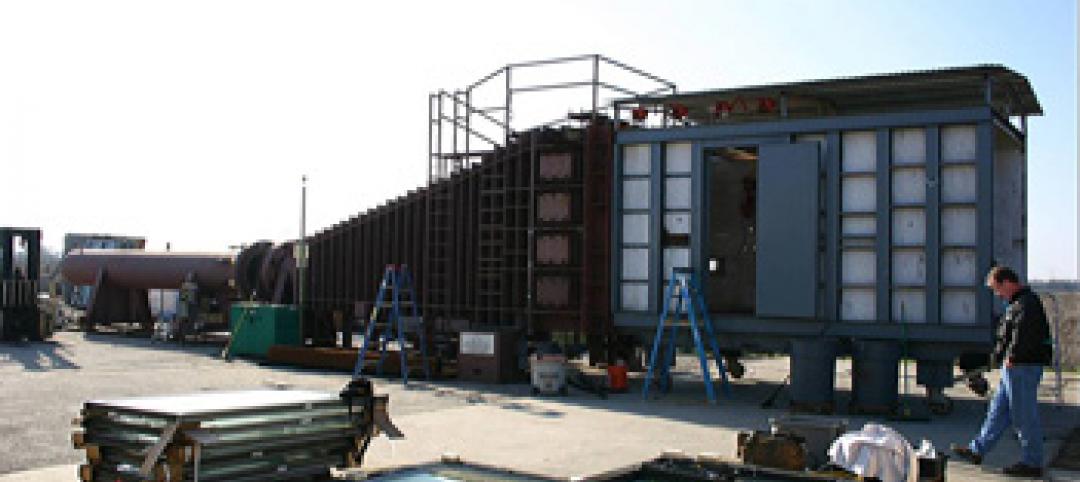The quality of infrastructure in the U.S. ranks just 19th in the world, trailing countries such as Oman, Portugal, and Spain, according to the World Economic Forum’s Global Competitiveness Report. Financially strapped state and local governments are responsible for the poor showing.
The American Society for Civil Engineers (ASCE)gave the U.S. a D+ in its annual Infrastructure Report Card, saying the country needs to invest $3.6 trillion by 2020 to upgrade our infrastructure. Infrastructure spending continues to lag, even while the economy adds jobs, GDP continues to grow, and home sales rebound following the recession.
States, counties, and cities, which are primarily responsible for funding schools, roads, waste disposal facilities, and other community assets, are focused on paying down debt and don’t have the money for a needed infrastructure spending spree. In the last few years, the bond markets have issued few notes for new capital projects despite historically low interest rates, according to the Securities Industry and Financial Markets Association. Much of the current municipal bond issuance appears to be refinancing.
In addition, with the federal government’s Highway Trust Fund expected to run out of money in August unless Congress replenishes it, many state transportation projects are in limbo.
(http://fivethirtyeight.com/features/why-we-still-cant-afford-to-fix-americas-broken-infrastructure/)
Related Stories
| Dec 4, 2014
Roofing material manufacturers extend research project on sustainable roofing
A coalition of trade groups is sponsoring continued analysis of a reroofing project at the Onondaga County Correctional Facility in Jamesville, New York.
| Nov 26, 2014
Colorado must fix construction defects law, Denver Post says
Colorado's “vexing construction defects law” has hampered the building of new condominiums in the state, according to an editorial in the Denver Post.
| Nov 26, 2014
Cheyenne, Wyoming City Council kills downtown design standards proposal
The Cheyenne, Wyoming City Council voted down a measure that would have implemented design standards for new construction and building additions downtown.
| Nov 26, 2014
ASTM International develops first product category rules for asphalt roofing industry
The Asphalt Roofing Manufacturers Association (ARMA) and ASTM International have developed Product Category Rules (PCR) for asphalt roofing in North America.
| Nov 26, 2014
International Green Construction Code will include option for outcome-based approach
The outcome-based approach requires the building owner to provide the building’s utility bills for a 12-month period within three years.
| Nov 20, 2014
Pentagon is reviewing hospital construction standards
An independent review panel of military specialists met with healthcare leaders Nov. 12 to consider whether construction standards for medical centers should be strengthened to align with industry best practices.
| Nov 20, 2014
ConsensusDocs releases first standard agreement for commissioning contracting
The new standard contract provides a contractual vehicle for owners to save significant money from operation and maintenance costs regarding energy performance.
| Nov 20, 2014
Revamped zoning is transforming several New Jersey downtowns
The zoning policy shift could produce the biggest transformation of North New Jersey’s downtowns since the arrival of malls pulled shoppers away from town centers in the 1960s and 1970s.
| Nov 20, 2014
ANSI approves 2015 Wood-Frame Construction Manual standard
The American Wood Council's 2015 “Wood-Frame Construction Manual for One- and Two-Family Dwellings” (WFCM ) has been approved as an American National Standard by the American National Standards Institute (ANSI).
| Nov 17, 2014
AAMA releases new blast hazard mitigation specifications for vertical fenestration systems
This document provides a guide for manufacturers, architects/specifiers, contractors, and building owners for specifying types of systems and services to meet the requirements of blast hazard mitigation.










